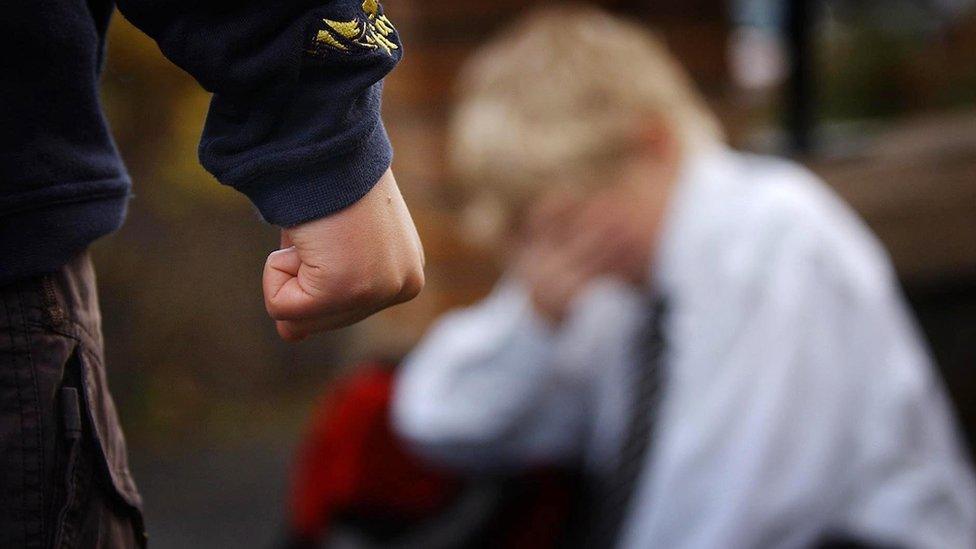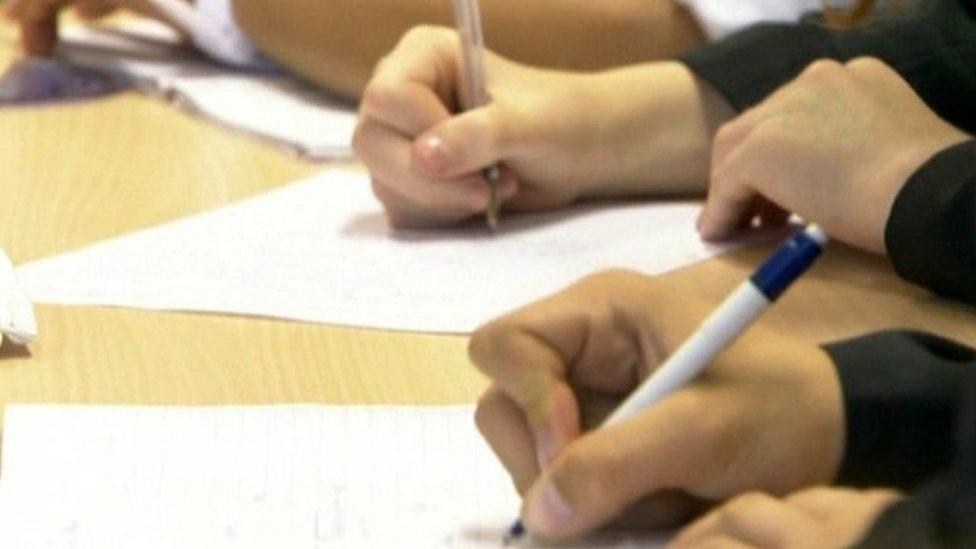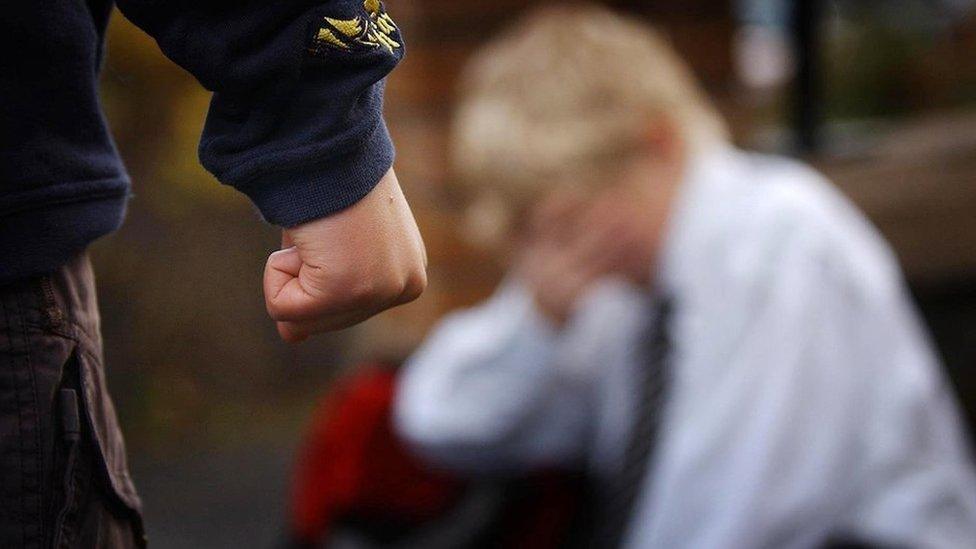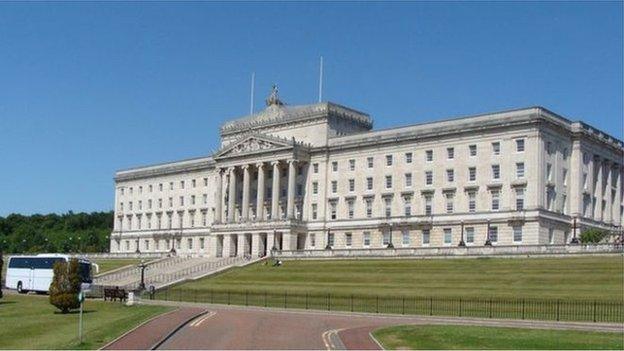Schools required to implement anti-bullying laws
- Published

Legislation aimed at addressing bullying was passed in 2016 and must be implemented by schools from September 2021
Schools in Northern Ireland will be legally required to record all incidents of bullying and alleged bullying from 1 September.
They will also have to keep records of the motivation behind the bullying, the method involved and how the incident was dealt with.
That is according to guidance to schools from the Department of Education on new anti-bullying laws.
The laws also provide a legal definition of bullying in schools.
Schools, though, have been told to avoid using terms like "bully" and "victim".
"It is important to avoid labelling individual pupils and instead to describe the pupil's behaviours," the guidance states.
"Instead of the term 'bully' it is recommended that 'pupil displaying bullying behaviour' is used and instead of the term 'victim' it is recommended that 'target' or 'pupil experiencing bullying behaviour' is used."
An anti-bullying bill was first introduced by former Education Minister John O'Dowd in 2015.
However although the bill received royal assent in 2016 it will only finally come into effect for schools on 1 September.
That is following a commencement order from Department of Education (DE).
In the Addressing Bullying in Schools Act, external, bullying is defined as the repeated use of "any verbal, or electronic communication, any other act or any combination of those by a pupil or group of pupils against another pupil or group of pupils".
There also has to be "the intention of causing physical or emotional harm to that pupil or group of pupils".
Cyber-bullying is covered by the act, but schools do not have a legal duty to deal with cyber-bullying which takes place outside school.

Cyber-bullying can be dealt with by schools if it has an impact on a pupil's education in school
"The act gives schools the explicit power to take action to prevent cyber bullying which is taking place outside school, but which is likely to have an impact on the pupil's education in school," the DE guidance said.
"While this gives schools the option to take action, it does not place a duty on schools to do so."
It is also up to a school to decide if a "one-off" incident should be treated as bullying.
'Intentionally left out'
Schools, though, do have to act to prevent and address any bullying - online or otherwise - which takes place in school, while pupils are travelling to or from school or while pupils are on school trips or visits.
Physical bullying can include hitting, kicking, locking a pupil in a room, or stealing or taking money from a pupil.
If a pupil is intentionally left out from games or other joint activities that can also be defined as bullying.
A school must have an anti-bullying policy, make this clear to parents and pupils and renew the policy every four years.

Schools are being given time to draw up anti-bullying policies and to consult with staff and parents
A school's governors also have to ensure a record is kept of all alleged bullying incidents.
The school also has to record the motivation behind the bullying and how it was dealt with.
Motivations behind bullying can include things like a pupil's age, appearance, community background, political views, race, religion, disability, gender identity or sexual orientation.
Education Minister Peter Weir said that the new laws would bring greater consistency across schools in the treatment of all forms of bullying.
But he said the new laws would not come into effect in schools until 1 September to allow them time to update their anti-bullying policies and to consult with parents, carers, pupils and staff.
Related topics
- Published30 November 2015

- Published10 February 2016
